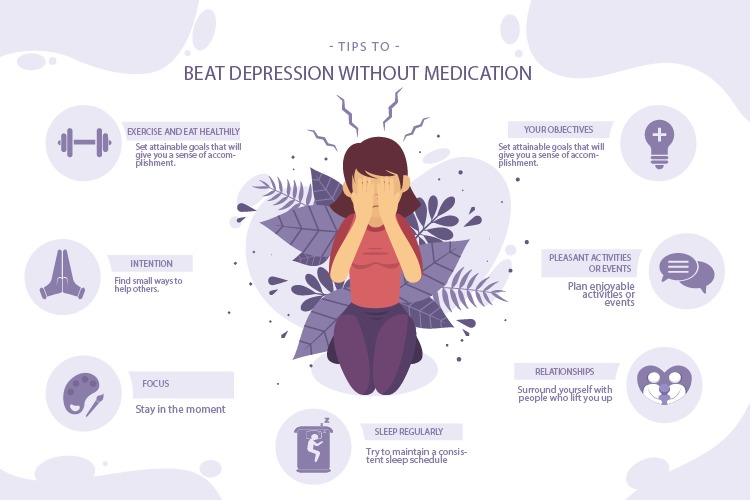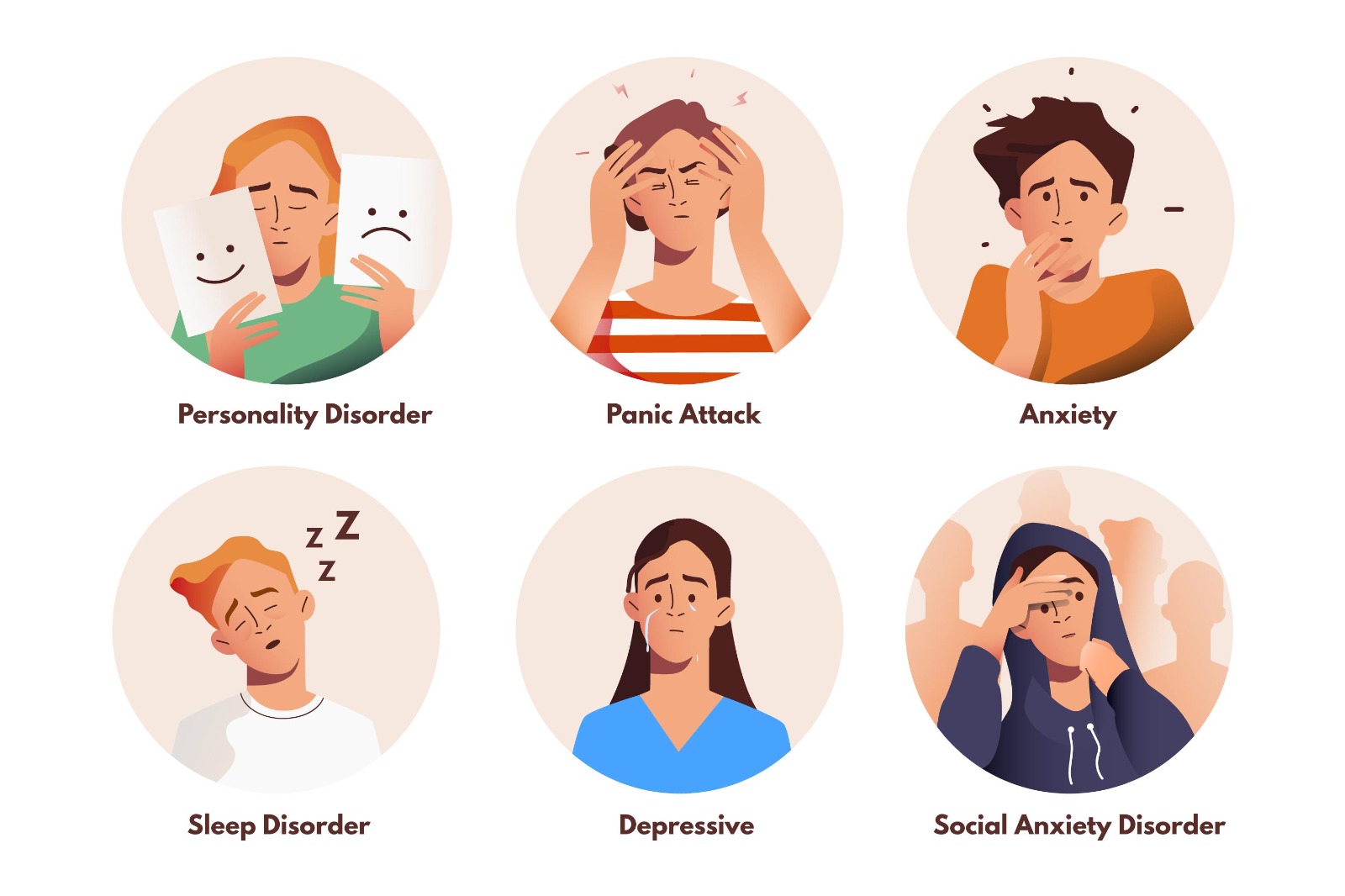Depression. Bipolar. Anxiety. You’ve probably heard these terms before, but how much do you know about mental health disorders and how they affect people?
Understanding these conditions can help reduce fear and misunderstanding of mental illness, as well as provide everyone with information on how to care for their own and their loved ones’ mental health.
What it is: Depression is a persistently low mood that interferes with daily life. It is frequently triggered by a combination of genetic, psychological, and environmental factors; studies show that life events such as poverty, the death of a loved one, physical illness, or abuse can increase the risk of becoming depressed.
Depression symptoms can range from mild to severe and include the following:
1.Sadness or a depressed mood
2.Loss of interest or pleasure in previously enjoyed activities
3.Appetite changes — weight loss or gain unrelated to dieting
4.Sleeping difficulties or excessive sleep
5.Energy loss or increased fatigue
6.Intentionless physical activity or slowed movements or speech.
7.Feeling insignificant or guilty
8.Problems thinking, concentrating, or making decisions
9.Suicide or death thoughts

Treatment and Assistance: Options include talk therapy with a trained counsellor or psychotherapist, exercise, and support groups. Antidepressants are also sometimes prescribed, but they should not be used to treat children or adolescents as the first line of treatment. All treatments should include identifying stressors and sources of support, as well as maintaining social networks and activities. Depression is a common and serious medical illness that has a negative impact on how you feel, think, and act. It is, thankfully, treatable.
I’m depressed… So, what now?
Seven Techniques to Beat Depression Without Medication

1.Your objectives: Set attainable goals that will give you a sense of accomplishment.
Most people feel guilty when discussing goals because they set unrealistic or unattainable goals. A goal is feasible if it is:
a. Something you have control over
b. Manageable
c. For you, this is realistic
d. Measurable (i.e., you know whether or not it is done or getting done)
If something goes wrong with your goal, adopt a “what can I learn from this?” mindset (rather than a judgmental, “this is why I’m horrible” mindset). Also, exercise caution when comparing your progress to that of others. We frequently contrast our greatest weakness with another person’s greatest strength.
2. Intention: Find small ways to help others.
Serve something larger than yourself to find personal meaning. Remember that service does not have to be extensive to be meaningful. “Success, like happiness, cannot be pursued; it must occur… as an unintended side effect of one’s personal dedication to a course greater than oneself,” says one author. Man’s Search for Meaning, by Viktor E. Frankl
3. Focus: Stay in the moment.
This technique is also known as mindfulness. Try not to be in your head with self-judgment during activities as much as possible. You may not be able to turn off the self-judgment, but you can recognise it and gently bring yourself back to the present moment. According to research, people who have higher self-compassion also have higher self-worth or self-confidence.
4. Exercise and eat healthily.
Moderate exercise five times per week (30 minutes per session) can significantly improve your mood. Moderate exercise is defined as any level of activity that makes it difficult to sing from the diaphragm. Take note of how the food or drink you’re consuming affects your mood. You don’t have to follow fad diets, but anyone who binges on carbs, junk food, and energy drinks will be depressed. Keep the virtue of moderation in mind.
5. Pleasant Activities or Events: Plan enjoyable activities or events.
Don’t wait until you’re “in the mood.” Allow yourself a 30-minute “vacation,” for example, or schedule a healthy hobby every day. Just remember to approach these activities with the proper mindset. Also, practise gratitude — pay attention to what went well today rather than just what went wrong. Think about keeping a gratitude journal. Recognize that being grateful for your blessings does not imply dismissing your problems.
6. Relationships: Surround yourself with people who lift you up.
Interact with people who lift you up on a regular basis (not people who bring you down). While it is acceptable to spend time alone, strike a balance and avoid isolating yourself, or the depression will persist.
7. Sleep Regularly: Try to maintain a consistent sleep schedule.
Maintain a healthy balance of sleep by not getting too little or too much. Staying up late one night and then sleeping in the next day is a sure way to increase depression. Also, avoid attempting to solve problems late at night when your brain is half asleep.
Depression, on the other hand, tends to linger when patients invent reasons why they can’t do these things. Doing several of these activities every day, especially when you don’t feel like it, is critical to the treatment of depression, regardless of the medication you’re taking. These positive coping skills may take time and practise, but if we don’t take the time to be well now, we may be forced to be sick later.


